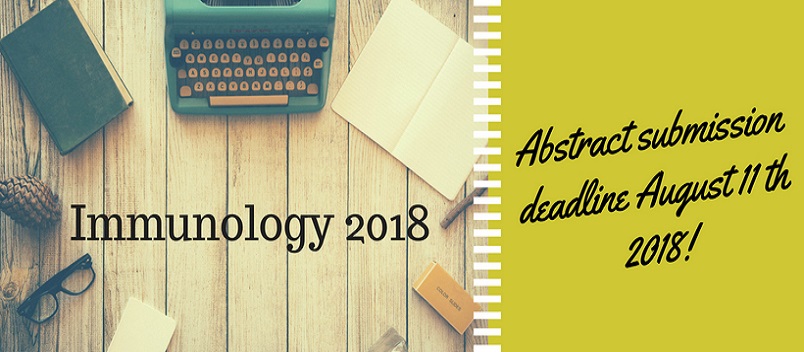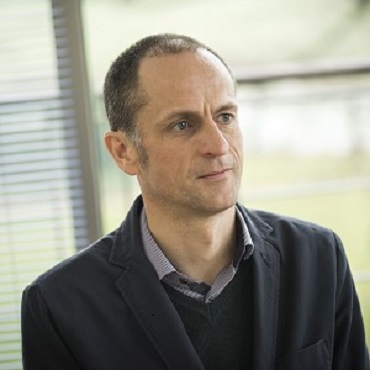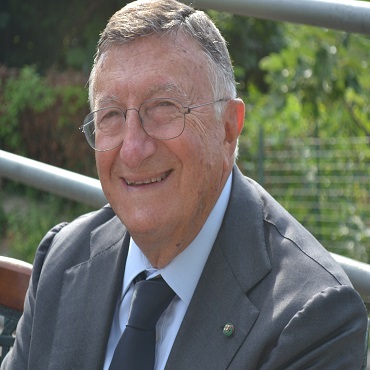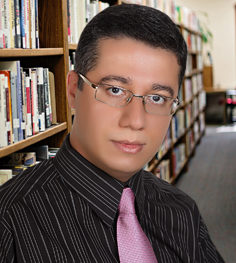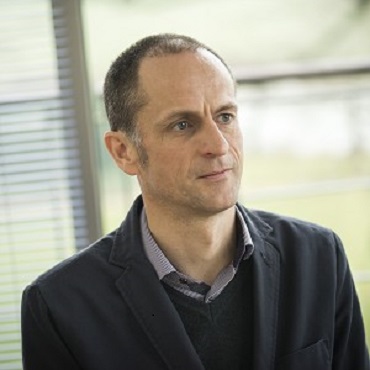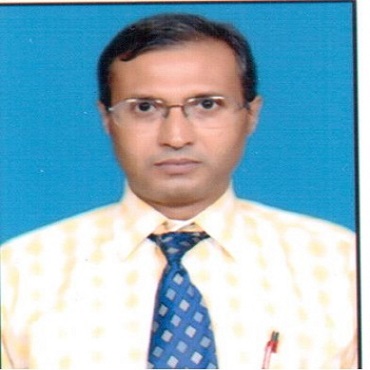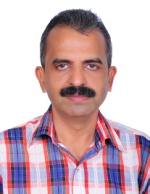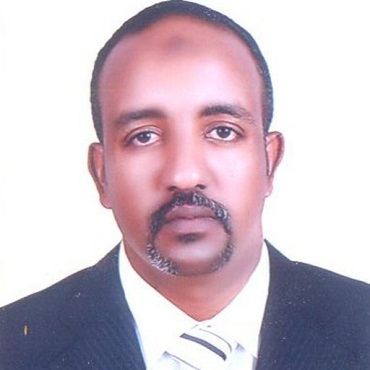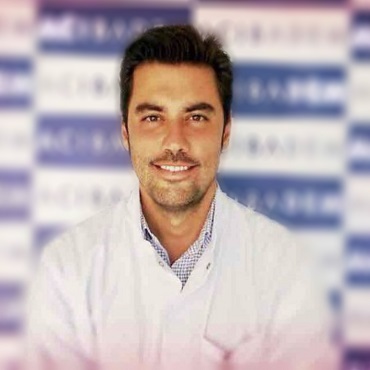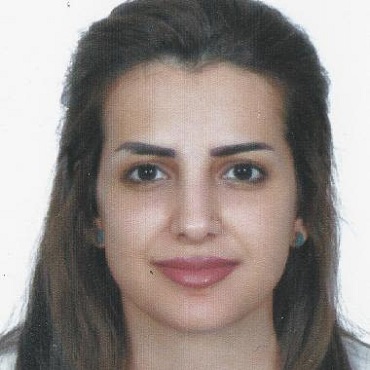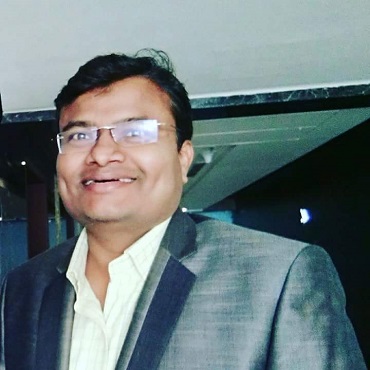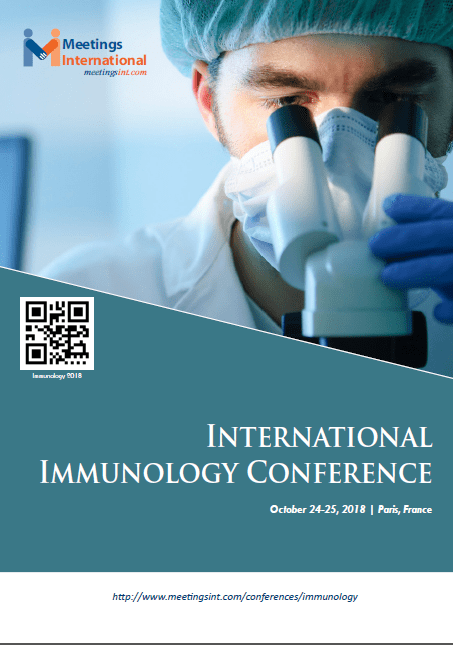
Immunology 2018
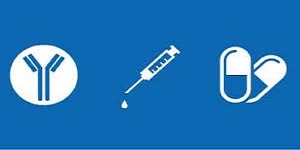
Theme: Revolutionize Research to Improve Human Health
Immunology 2018, an independently organized by Meetings International event happening in October 24-25, 2018.Our goal is to bring together bright minds to give talks that are idea-focused, and on a wide range of Immunology related research work, to foster learning, inspiration and wonder and provoke conversations that matter.Meetings international officially welcomes all the participants from all over the world to attend international conference on “International Immunology Conference”.This conference is Mainly accelerating on “Revolutionize Research to Improve Human Health”This conference acquires a global platform for Immunologists, Doctors, Researchers, Surgeons, Physicians, Young Researchers, business Delegates to Exchange Ideas and knowledge.Immunology 2018 Conference is comprised of various tracks and sessions designed to offer comprehensive sessions that address current issues in the field of Immunology.The Immune System, Allergy, Asthma and Hypersensitivity, Immunotherapy and Cancer/Tumor Immunology, Microbiology and Clinical Immunology, Antibiotics and Current Research, Neuroimmunology, Biochemistry and Pathoimmunology, Reproductive Immunology, Transplantation Immunology, Antigen and Antibody: An Interplay, Autoimmunity, Immunodeficiency and Immune System Disorders, Immunogenetics, Computational Immunology, Pediatric Immunology,Immunity ,Infectious agents and Infectious Diseases, Immunization and Vaccination,Antibody Production and its Global Market
Target Audience
• Immunology Students, Scientists
• Immunology Researchers
• Immunology Faculty
• Medical Colleges
• Immunology Associations and Societies
• Business Entrepreneurs
• Training and Research Institutes
• Manufacturing Medical Devices Companies and Pharmaceuticals
Importance
This conference will be a valuable and important platform for inspiring international and interdisciplinary exchange at the forefront of Immunology. Over the course of 2 days, internationally-renowned speakers will describe how their research journey has developed in response to contemporary challenges: inspirational and innovative lessons in .The attending experts and industry partners will also provide a fantastic networking experience. The series of talks, poster presentations, workshops, discussions and networking events will keep participants engaged in learning and making new connections at Immunology 2018. The Conference will bring together academicians, chemists, scientists, dietitians, nutritionists, engineers, technologists from all over the world, and we hope that you will take this opportunity to join us for academic exchange and visit the city of Paris.
The Scope
The scope of Immunology 2018 covers both theoretical and practical areas of Immunology and the detailed areas of interest for this conference are listed in the section of "Abstract Submission". You're welcome to submit abstracts for presentation. The core aim of immunology conference is to provide an opportunity for the delegates / speakers to meet, interact and exchange new ideas on the various topics of Immunology.
Why to attend ?
With members from around from 1000 more scientific societies and publishes 700+ Open access journals which the world focused on learning about immunology and its advances; this is your best opportunity to reach the largest assemblage of participants from the immunology community. Conduct presentations, distribute information, meet with current and potential scientists, make a splash with new drug developments, and receive name recognition at this 2-day event. World-renowned speakers, the most recent techniques, developments, and the newest updates in immunology are hallmarks of this conference.
Why Paris?
Immunology is the rapidly developing field of bio therapeutics in Paris; in fact it that The guarantee of health insurance is the first reason why Immunologists experts around the world look to France as a model for Immunotherapy treatment and care. So the Immunology 2018 is going to be held in France.
Paris, France's capital is a major European city and a global centre for art, fashion, and culture. Its 19th-century city scape is crisscrossed by wide boulevards and the River Seine. Beyond such landmarks as the Eiffel Tower and the 12th-century, Gothic Notre-Dame cathedral, the city is known for its cafe culture and designer boutiques along the Rue du Faubourg Saint-Honore.
Why to Attend:
It provides an international platform for discussion of present and future challenges in Immunology, Immunology education, continuing education and expertise meeting. World-leading health Immunologists, clinicians, educators and researchers will present cutting-edge and practical clinical techniques based upon widely accepted evidence and will introduce new and emerging research.
-
Sharpen your skills.
-
Meet experts and influencers face-to-face.
-
Learn in a new space, Network.
-
Explore new ways of working.
-
Get greater focus.
-
Learn new information from presenters.
-
Networking with new people within your field.
-
The ability to share your ideas and get immediate feedback from credible individuals.
-
To expand your knowledge and find solutions to problems.
-
To present your ideas and work to others.
-
Get out of Dodge and just have fun.
Session-1
The Immune System
The immune system is a host defence system comprising many biological structures and processes within an organism that protects against disease. It is a network of cells, tissues, and organs that work together to defend against attacks by “foreign” invaders. It also protects the host from a group of pathogenic microbes that are themselves constantly evolving and helps the host to eradicate toxic or allergenic substances that enter through mucosal surfaces. Central to the immune system’s ability to mobilize a response to an invading pathogen, toxin or allergen is its ability to distinguish self from non-self. Both innate and adaptive mechanisms are used by the host to detect and eliminate pathogenic microbes.
Immunology Conference | Immunology workshop | Global Immunology conference | Immunology symposium | Immunology congress | Immunology meeting | Immunology 2018 | Immunology conference 2018 | International Immunology Conference | Immunology Seminar | Immunology annual Meeting | American Immunology Conference | European Immunology Conference | Asian Immunology Conference
Related Societies and Associations
Europe: European Federation for Immunogenetics; Spanish Society of Immunology; British Society of Immunology; The British Society for Histocompatibility and Immunogenetics; European Academy Of Allergy & Clinical Immunology; Society for Mucosal Immunology; Irish Society of Immunology; Austrian Society for Allergology and Immunology
Asia Pacific & Middle East: Indian Immunology Society; Japanese Society for Immunology; Egyptian Society of Immunology; South African Immunology Society; Chinese Society of Immunology; Singaporean Society for Immunology; Israel Immunological Society; Iranian Society for Immunology; Allergy & Immunology Society of Sri Lanka
USA: The American Association of Immunologists; Federation of Clinical Immunology Societies; The American association of Immunologist; American Acedemy of Allergy, Asthma and Immunology; Argentina Society of Immunology; Colombian Association of Allergy; Canadian Society of Immunology
Session-2
Allergy, Asthma and Hypersensitivity
An allergy is a reaction by your immune system to something in the environment that generally causes little or no problem in most people. Allergic reactions occur when an individual who has produced IgE antibody in response to an innocuous antigen, or allergen, subsequently encounters the same allergen. The allergen triggers the activation of IgE-binding mast cells in the exposed tissue, leading to a series of responses that are characteristic of allergy. Allergy is one of a class of immune system responses that are termed hypersensitivity reactions. These are harmful immune responses that produce tissue injury and may cause serious disease. Hypersensitivity reactions were classified into four types by Coombs and Gel. Allergy is often equated with type I hypersensitivity (immediate-type hypersensitivity reactions mediated by IgE)
Immunology Conference | Immunology workshop | Global Immunology conference | Immunology symposium | Immunology congress | Immunology meeting | Immunology 2018 | Immunology conference 2018 | International Immunology Conference | Immunology Seminar | Immunology annual Meeting | American Immunology Conference | European Immunology Conference | Asian Immunology Conference
Related Societies and Associations
Europe: European Federation for Immunogenetics; Spanish Society of Immunology; British Society of Immunology; The British Society for Histocompatibility and Immunogenetics; European Academy Of Allergy & Clinical Immunology; Society for Mucosal Immunology; Irish Society of Immunology; Austrian Society for Allergology and Immunology
Asia Pacific & Middle East: Indian Immunology Society; Japanese Society for Immunology; Egyptian Society of Immunology; South African Immunology Society; Chinese Society of Immunology; Singaporean Society for Immunology; Israel Immunological Society; Iranian Society for Immunology; Allergy & Immunology Society of Sri Lanka
USA: The American Association of Immunologists; Federation of Clinical Immunology Societies; The American association of Immunologist; American Academy of Allergy, Asthma and Immunology; Argentina Society of Immunology; Colombian Association of Allergy; Canadian Society of Immunology
Session-3
Immunotherapy and Cancer/Tumour Immunology
Immunotherapy is the "treatment of disease by inducing, enhancing, or suppressing an immune response”. Immunotherapies designed to elicit or amplify an immune response are classified as activation immunotherapies, while immunotherapies that reduce or suppress are classified as suppression immunotherapies. Tumour immunology defines the interaction among cells of the immune system with tumour cells. The tumour microenvironment is a main aspect of cancer biology that contributes to tumour initiation, tumour progression and responses to therapy. Tumours are groups of abnormal cells that form lumps. Different kinds of tumours grow and behave differently, depending on whether they are non-cancerous or cancerous. And Cancer Immunology is a branch of immunology and it studies interactions between the immune system and cancer cells. These cancer cells, through subtle alterations, become immortal malignant cells but are often not changed enough to elicit an immune reaction. Understanding how the immune system works—or does not work—against cancer is a primary focus of Cancer Immunology investigators.
Related Societies and Associations
Europe: European Federation for Immunogenetics; Spanish Society of Immunology; British Society of Immunology; The British Society for Histocompatibility and Immunogenetics; European Academy Of Allergy & Clinical Immunology; Society for Mucosal Immunology; Irish Society of Immunology; Austrian Society for Allergology and Immunology
Asia Pacific & Middle East: Indian Immunology Society; Japanese Society for Immunology; Egyptian Society of Immunology; South African Immunology Society; Chinese Society of Immunology; Singaporean Society for Immunology; Israel Immunological Society; Iranian Society for Immunology; Allergy & Immunology Society of Sri Lanka
USA: The American Association of Immunologists; Federation of Clinical Immunology Societies; The American association of Immunologist; American Acedemy of Allergy, Asthma and Immunology; Argentina Society of Immunology; Colombian Association of Allergy; Canadian Society of Immunology
Immunology Conference | Immunology workshop | Global Immunology conference | Immunology symposium | Immunology congress | Immunology meeting | Immunology 2018 | Immunology conference 2018 | International Immunology Conference | Immunology Seminar | Immunology annual Meeting | American Immunology Conference | European Immunology Conference | Asian Immunology Conference
Session-4
Microbiology and Clinical Immunology
Microbiology is the branch which deals with all the living organisms those are too small to be visible with the naked eye. This includes bacteria, viruses, fungi, archaea, prions, protozoa and algae, collectively known as 'microbes'. These microbes play key roles in nutrient cycling, biodegradation, climate change, food spoilage, the cause and control of disease, and biotechnology. Clinical immunology is the study of diseases and disorders that may occur as a result of weak immune system including failure, aberrant action, and malignant growth of the cellular elements of the system. It also involves diseases of other systems, where immune reactions play a part in the pathology and clinical features. Clinical Immunology in the 21st century is cherished inside the structure of therapeutic practice. The subject encompasses diseases where a malfunction of the immune system itself is the basic cause, together with diseases where some external agent is the initiating factor but an excessive response by the immune system produces the actual tissue damage.
Immunology Conference | Immunology workshop | Global Immunology conference | Immunology symposium | Immunology congress | Immunology meeting | Immunology 2018 | Immunology conference 2018 | International Immunology Conference | Immunology Seminar | Immunology annual Meeting | American Immunology Conference | European Immunology Conference | Asian Immunology Conference
Related Societies and Associations
Europe: European Federation for Immunogenetics; Spanish Society of Immunology; British Society of Immunology; The British Society for Histocompatibility and Immunogenetics; European Academy Of Allergy & Clinical Immunology; Society for Mucosal Immunology; Irish Society of Immunology; Austrian Society for Allergology and Immunology
Asia Pacific & Middle East: Indian Immunology Society; Japanese Society for Immunology; Egyptian Society of Immunology; South African Immunology Society; Chinese Society of Immunology; Singaporean Society for Immunology; Israel Immunological Society; Iranian Society for Immunology; Allergy & Immunology Society of Sri Lanka
USA: The American Association of Immunologists; Federation of Clinical Immunology Societies; The American association of Immunologist; American Acedemy of Allergy, Asthma and Immunology; Argentina Society of Immunology; Colombian Association of Allergy; Canadian Society of Immunology
Session-5
Reproductive Immunology
Reproductive immunology refers to a field of health science that studies interactions between the immune system and components related to the reproductive system, such as maternal immune tolerance towards the foetus, or immunological interactions across the blood-testis barrier. The concept has been used by fertility clinics to explain the fertility problems, recurrent miscarriages and pregnancy complications observed when this state of immunological tolerance is not successfully achieved. Immunological therapy is the new up and coming method for treating many cases of previously "unexplained infertility" or recurrent miscarriage.
Immunology Conference | Immunology workshop | Global Immunology conference | Immunology symposium | Immunology congress | Immunology meeting | Immunology 2018 | Immunology conference 2018 | International Immunology Conference | Immunology Seminar | Immunology annual Meeting | American Immunology Conference | European Immunology Conference | Asian Immunology Conference
Related Societies and Associations
Europe: European Federation for Immunogenetics; Spanish Society of Immunology; British Society of Immunology; The British Society for Histocompatibility and Immunogenetics; European Academy Of Allergy & Clinical Immunology; Society for Mucosal Immunology; Irish Society of Immunology; Austrian Society for Allergology and Immunology
Asia Pacific & Middle East: Indian Immunology Society; Japanese Society for Immunology; Egyptian Society of Immunology; South African Immunology Society; Chinese Society of Immunology; Singaporean Society for Immunology; Israel Immunological Society; Iranian Society for Immunology; Allergy & Immunology Society of Sri Lanka
USA: The American Association of Immunologists; Federation of Clinical Immunology Societies; The American association of Immunologist; American Acedemy of Allergy, Asthma and Immunology; Argentina Society of Immunology; Colombian Association of Allergy; Canadian Society of Immunology
Session-6
Transplantation Immunology
Transplant immunology is the study of the immune response that occurs when an organ or tissue is moved (grafted) from one individual to another. A major problem following transplantation is that the immune system of the recipient sees the grafted tissue as 'foreign' and attacks and destroys it. Hence in immunology the term transplantation is used to refer the procedure involved in the replacement of a non-functional or damaged organ or tissue with a good and functional organ or tissue to safe guard the life of an individual.
Immunology Conference | Immunology workshop | Global Immunology conference | Immunology symposium | Immunology congress | Immunology meeting | Immunology 2018 | Immunology conference 2018 | International Immunology Conference | Immunology Seminar | Immunology annual Meeting | American Immunology Conference | European Immunology Conference | Asian Immunology Conference
Related Societies and Associations
Europe: European Federation for Immunogenetics; Spanish Society of Immunology; British Society of Immunology; The British Society for Histocompatibility and Immunogenetics; European Academy Of Allergy & Clinical Immunology; Society for Mucosal Immunology; Irish Society of Immunology; Austrian Society for Allergology and Immunology
Asia Pacific & Middle East: Indian Immunology Society; Japanese Society for Immunology; Egyptian Society of Immunology; South African Immunology Society; Chinese Society of Immunology; Singaporean Society for Immunology; Israel Immunological Society; Iranian Society for Immunology; Allergy & Immunology Society of Sri Lanka
USA: The American Association of Immunologists; Federation of Clinical Immunology Societies; The American association of Immunologist; American Acedemy of Allergy, Asthma and Immunology; Argentina Society of Immunology; Colombian Association of Allergy; Canadian Society of Immunology
Session-7
Antibiotics and Current Research
Antibiotics are the drug used to treat bacterial infections. Antibiotics have no effect on viral infections. Originally, an antibiotic was a substance produced by one microorganism that selectively inhibits the growth of another. Synthetic antibiotics, usually chemically related to natural antibiotics, have since been produced that accomplish comparable tasks. Several antibiotics are also effective against fungi and protozoans, and some are toxic to humans and animals, even when given in therapeutic dosage.Antibiotic must reach the binding site of the microbe to interfere with the life cycle & must occupy “sufficient” number of active sites. Antibiotic must reside on the active site for “sufficient” time. Antibiotics are not contact poisons. Antibacterial antibiotics target the bacterial cell wall or the cell membrane, or interfere with essential bacterial enzymes.
Current research in antibiotic resistance can be divided into several areas of focus.
• Novel antibacterial drug discover antibacterial drug discovery
• Investigating antibiotic use and determining minimal-risk policies
• Nutrition as a method of controlling bacterial infections
• Economic implications of bacterial resistance
• Compilation of information on bacterial resistance
Related Societies and Associations
Europe: European Federation for Immunogenetics; Spanish Society of Immunology; British Society of Immunology; The British Society for Histocompatibility and Immunogenetics; European Academy Of Allergy & Clinical Immunology; Society for Mucosal Immunology; Irish Society of Immunology; Austrian Society for Allergology and Immunology
Asia Pacific & Middle East: Indian Immunology Society; Japanese Society for Immunology; Egyptian Society of Immunology; South African Immunology Society; Chinese Society of Immunology; Singaporean Society for Immunology; Israel Immunological Society; Iranian Society for Immunology; Allergy & Immunology Society of Sri Lanka
USA: The American Association of Immunologists; Federation of Clinical Immunology Societies; The American association of Immunologist; American Academy of Allergy, Asthma and Immunology; Argentina Society of Immunology; Colombian Association of Allergy; Canadian Society of Immunology
Session-8
Antigen and Antibody: An Interplay
Antibodies, also called immunoglobulin’s, are proteins manufactured by the body that help fight against foreign substances called antigens. When an antigen enters the body, it stimulates the immune system to produce antibodies. (The immune system is the body's natural defence system.) The antibodies attach, or bind themselves to the antigen and inactivate it. Every healthy adult's body has small amounts of thousands of different antibodies. Each one is highly specialized to recognize just one kind of foreign substance. Antibody molecules are typically Y-shaped, with a binding site on each arm of the Y. The binding sites of each antibody, in turn, have a specific shape. Only antigens that match this shape will fit into them. The role of antibodies is to bind with antigens and inactivate them so that other bodily processes can take over, destroy, and remove the foreign substances from the body.
Immunology Conference | Immunology workshop | Global Immunology conference | Immunology symposium | Immunology congress | Immunology meeting | Immunology 2018 | Immunology conference 2018 | International Immunology Conference | Immunology Seminar | Immunology annual Meeting | American Immunology Conference | European Immunology Conference | Asian Immunology Conference
Related Societies and Associations
Europe: European Federation for Immunogenetics; Spanish Society of Immunology; British Society of Immunology; The British Society for Histocompatibility and Immunogenetics; European Academy Of Allergy & Clinical Immunology; Society for Mucosal Immunology; Irish Society of Immunology; Austrian Society for Allergology and Immunology
Asia Pacific & Middle East: Indian Immunology Society; Japanese Society for Immunology; Egyptian Society of Immunology; South African Immunology Society; Chinese Society of Immunology; Singaporean Society for Immunology; Israel Immunological Society; Iranian Society for Immunology; Allergy & Immunology Society of Sri Lanka
USA: The American Association of Immunologists; Federation of Clinical Immunology Societies; The American association of Immunologist; American Academy of Allergy, Asthma and Immunology; Argentina Society of Immunology; Colombian Association of Allergy; Canadian Society of Immunology
Session-9
Autoimmunity
Autoimmunity is the system of immune responses of an organism against its own healthy cells and tissues. It refers to a failure of the body’s immune system to recognize its own cells and tissues as “self”. Instead, immune responses are launched against these cells and tissues as if they were foreign or invading bodies. Autoimmunity is present to some extent in everyone and is usually harmless. However, autoimmunity can cause a broad range of human illnesses, known collectively as autoimmune diseases. Autoimmune diseases occur when there is progression from benign autoimmunity to pathogenic autoimmunity. This progression is determined by genetic influences as well as environmental triggers.
Immunology Conference | Immunology workshop | Global Immunology conference | Immunology symposium | Immunology congress | Immunology meeting | Immunology 2018 | Immunology conference 2018 | International Immunology Conference | Immunology Seminar | Immunology annual Meeting | American Immunology Conference | European Immunology Conference | Asian Immunology Conference
Related Societies and Associations
Europe: European Federation for Immunogenetics; Spanish Society of Immunology; British Society of Immunology; The British Society for Histocompatibility and Immunogenetics; European Academy Of Allergy & Clinical Immunology; Society for Mucosal Immunology; Irish Society of Immunology; Austrian Society for Allergology and Immunology
Asia Pacific & Middle East: Indian Immunology Society; Japanese Society for Immunology; Egyptian Society of Immunology; South African Immunology Society; Chinese Society of Immunology; Singaporean Society for Immunology; Israel Immunological Society; Iranian Society for Immunology; Allergy & Immunology Society of Sri Lanka
USA: The American Association of Immunologists; Federation of Clinical Immunology Societies; The American association of Immunologist; American Academy of Allergy, Asthma and Immunology; Argentina Society of Immunology; Colombian Association of Allergy; Canadian Society of Immunology
Session-10
Immunodeficiency and Immune system disorders
Immunodeficiency is a state in which the immune system's ability to fight infectious disease and cancer is compromised or entirely absent. Most cases of immunodeficiency are acquired ("secondary") due to extrinsic factors that affect the patient's immune system. Examples of these extrinsic factors include HIV infection, extremes of age, and environmental factors, such as nutrition.[1] In the clinical setting, the immunosuppression by some drugs, such as steroids, can be either an adverse effect or the intended purpose of the treatment. Immune system disorders cause abnormally low activity or over activity of the immune system. In cases of immune system over activity, the body attacks and damages its own tissues (autoimmune diseases). Immune deficiency diseases decrease the body's ability to fight invaders, causing vulnerability to infections.
Immunology Conference | Immunology workshop | Global Immunology conference | Immunology symposium | Immunology congress | Immunology meeting | Immunology 2018 | Immunology conference 2018 | International Immunology Conference | Immunology Seminar | Immunology annual Meeting | American Immunology Conference | European Immunology Conference | Asian Immunology Conference
Related Societies and Associations
Europe: European Federation for Immunogenetics; Spanish Society of Immunology; British Society of Immunology; The British Society for Histocompatibility and Immunogenetics; European Academy Of Allergy & Clinical Immunology; Society for Mucosal Immunology; Irish Society of Immunology; Austrian Society for Allergology and Immunology
Asia Pacific & Middle East: Indian Immunology Society; Japanese Society for Immunology; Egyptian Society of Immunology; South African Immunology Society; Chinese Society of Immunology; Singaporean Society for Immunology; Israel Immunological Society; Iranian Society for Immunology; Allergy & Immunology Society of Sri Lanka
USA: The American Association of Immunologists; Federation of Clinical Immunology Societies; The American association of Immunologist; American Academy of Allergy, Asthma and Immunology; Argentina Society of Immunology; Colombian Association of Allergy; Canadian Society of Immunology
Session-11
Immunogenetics
Immunogenetics or Immunogenetics is the branch of medical genetics that explores the relationship between the immune system and genetics. Immunology deals with the biological and biochemical basis for the body's defence against germs (such as bacteria, viruses, and fungi), as well as against foreign agents such as biological toxins and environmental pollutants, and failures and malfunctions of these defence mechanisms. Apart from these external effects on the organism, there are also defence reactions regarding the body's own cells, e.g. in the scope of the bodily reactions on cancer and the lacking reaction of a body on healthy cells in the scope of an immune-mediated disease. Hence, Immunology is a sub-category of biology.
Immunology Conference | Immunology workshop | Global Immunology conference | Immunology symposium | Immunology congress | Immunology meeting | Immunology 2018 | Immunology conference 2018 | International Immunology Conference | Immunology Seminar | Immunology annual Meeting | American Immunology Conference | European Immunology Conference | Asian Immunology Conference
Related Societies and Associations
Europe: European Federation for Immunogenetics; Spanish Society of Immunology; British Society of Immunology; The British Society for Histocompatibility and Immunogenetics; European Academy Of Allergy & Clinical Immunology; Society for Mucosal Immunology; Irish Society of Immunology; Austrian Society for Allergology and Immunology
Asia Pacific & Middle East: Indian Immunology Society; Japanese Society for Immunology; Egyptian Society of Immunology; South African Immunology Society; Chinese Society of Immunology; Singaporean Society for Immunology; Israel Immunological Society; Iranian Society for Immunology; Allergy & Immunology Society of Sri Lanka
USA: The American Association of Immunologists; Federation of Clinical Immunology Societies; The American association of Immunologist; American Academy of Allergy, Asthma and Immunology; Argentina Society of Immunology; Colombian Association of Allergy; Canadian Society of Immunology
Session-12
Computational Immunology
Computational immunology includes the development and application of bioinformatics methods, mathematical models and statistical techniques for the study of immune system biology. It aims to study the complex protein–protein interactions and networks and allows a better understanding of immune responses and their role during normal, diseased and reconstitution states. Computational immunology covers a broad range of applications. Mathematical models have long been used for modelling immune responses, as well as molecular and cellular interactions, development of infection, tumour growth, and host-pathogen interactions. The applied arm of computational immunology, immunoinformatics, is dedicated to development and application of computational methods and tools for the analyses of immunological data and knowledge extraction using statistical inference and machine learning algorithms.
Immunology Conference | Immunology workshop | Global Immunology conference | Immunology symposium | Immunology congress | Immunology meeting | Immunology 2018 | Immunology conference 2018 | International Immunology Conference | Immunology Seminar | Immunology annual Meeting | American Immunology Conference | European Immunology Conference | Asian Immunology Conference
Related Societies and Associations
Europe: European Federation for Immunogenetics; Spanish Society of Immunology; British Society of Immunology; The British Society for Histocompatibility and Immunogenetics; European Academy Of Allergy & Clinical Immunology; Society for Mucosal Immunology; Irish Society of Immunology; Austrian Society for Allergology and Immunology
Asia Pacific & Middle East: Indian Immunology Society; Japanese Society for Immunology; Egyptian Society of Immunology; South African Immunology Society; Chinese Society of Immunology; Singaporean Society for Immunology; Israel Immunological Society; Iranian Society for Immunology; Allergy & Immunology Society of Sri Lanka
USA: The American Association of Immunologists; Federation of Clinical Immunology Societies; The American association of Immunologist; American Academy of Allergy, Asthma and Immunology; Argentina Society of Immunology; Colombian Association of Allergy; Canadian Society of Immunology
Session-13
Neuroimmunology
Neuroimmunology is the study of the interaction between central nervous system (the brain and spinal cord) and immune system. Neuroimmunology contributes to development of new pharmacological treatments for several neurological conditions. Neuroinflammation and neuroimmune activation have been shown to play a role in the etiology of a variety of neurological disorders such as stroke, Parkinson's and Alzheimer’s disease, multiple sclerosis, pain and AIDS-associated dementia etc. Cognitive neuroscience becomes a very major method to understand human cognition, meanwhile results can clarify functional brain organisation, such as the operations performed by a certain brain area and the system of distributed, discrete neural areas supporting a particular Psychological representation.
Immunology Conference | Immunology workshop | Global Immunology conference | Immunology symposium | Immunology congress | Immunology meeting | Immunology 2018 | Immunology conference 2018 | International Immunology Conference | Immunology Seminar | Immunology annual Meeting | American Immunology Conference | European Immunology Conference | Asian Immunology Conference
Related Societies and Associations
Europe: European Federation for Immunogenetics; Spanish Society of Immunology; British Society of Immunology; The British Society for Histocompatibility and Immunogenetics; European Academy Of Allergy & Clinical Immunology; Society for Mucosal Immunology; Irish Society of Immunology; Austrian Society for Allergology and Immunology
Asia Pacific & Middle East: Indian Immunology Society; Japanese Society for Immunology; Egyptian Society of Immunology; South African Immunology Society; Chinese Society of Immunology; Singaporean Society for Immunology; Israel Immunological Society; Iranian Society for Immunology; Allergy & Immunology Society of Sri Lanka
USA: The American Association of Immunologists; Federation of Clinical Immunology Societies; The American association of Immunologist; American Acedemy of Allergy, Asthma and Immunology; Argentina Society of Immunology; Colombian Association of Allergy; Canadian Society of Immunology
Session-14
Immunochemistry and Immunopathology
Immunochemistry is a branch of chemistry that involves the study of the molecular mechanisms underlying the function of the immune system, especially the nature of antibodies, antigens and their interactions. Pathology is a branch of medical science primarily concerning the examination of organs, tissues, and bodily fluids in order to make a diagnosis of disease. Immunopathology is abranch of biomedical science concerned with immuneresponsesto disease, with immunodeficiency diseases, and with diseases caused by immune mechanisms. It includes the study of the pathology of an organism, organ system, or disease with respect to the immune system, immunity, and immune responses. The immune pathological reaction is caused by release of toxins and the apoptosis of infected cell.
Immunology Conference | Immunology workshop | Global Immunology conference | Immunology symposium | Immunology congress | Immunology meeting | Immunology 2018 | Immunology conference 2018 | International Immunology Conference | Immunology Seminar | Immunology annual Meeting | American Immunology Conference | European Immunology Conference | Asian Immunology Conference
Related Societies and Associations
Europe: European Federation for Immunogenetics; Spanish Society of Immunology; British Society of Immunology; The British Society for Histocompatibility and Immunogenetics; European Academy Of Allergy & Clinical Immunology; Society for Mucosal Immunology; Irish Society of Immunology; Austrian Society for Allergology and Immunology
Asia Pacific & Middle East: Indian Immunology Society; Japanese Society for Immunology; Egyptian Society of Immunology; South African Immunology Society; Chinese Society of Immunology; Singaporean Society for Immunology; Israel Immunological Society; Iranian Society for Immunology; Allergy & Immunology Society of Sri Lanka
USA: The American Association of Immunologists; Federation of Clinical Immunology Societies; The American association of Immunologist; American Academy of Allergy, Asthma and Immunology; Argentina Society of Immunology; Colombian Association of Allergy; Canadian Society of Immunology
Session-15
Paediatric Immunology
A child suffering from allergies or other problems with his immune system is referred as paediatric immunology. Child’s immune system fights against infections. If the child has allergies, their immune system wrongly reacts to things that are usually harmless. Pet dander, pollen, dust, mould spores, insect stings, food, and medications are examples of such things. This reaction may cause their body to respond with health problems such as asthma, hay fever, hives, eczema (a rash), or a very severe and unusual reaction called anaphylaxis. Sometimes, if your child’s immune system is not working right, he may suffer from frequent, severe, and/or uncommon infections. Examples of such infections are sinusitis (inflammation of one or more of the sinuses), pneumonia (infection of the lung), thrush (a fungus infection in the mouth), and abscesses (collections of pus surrounded by inflamed tissue) that keep coming back.
Immunology Conference | Immunology workshop | Global Immunology conference | Immunology symposium | Immunology congress | Immunology meeting | Immunology 2018 | Immunology conference 2018 | International Immunology Conference | Immunology Seminar | Immunology annual Meeting | American Immunology Conference | European Immunology Conference | Asian Immunology Conference
Related Societies and Associations
Europe: European Federation for Immunogenetics; Spanish Society of Immunology; British Society of Immunology; The British Society for Histocompatibility and Immunogenetics; European Academy Of Allergy & Clinical Immunology; Society for Mucosal Immunology; Irish Society of Immunology; Austrian Society for Allergology and Immunology
Asia Pacific & Middle East: Indian Immunology Society; Japanese Society for Immunology; Egyptian Society of Immunology; South African Immunology Society; Chinese Society of Immunology; Singaporean Society for Immunology; Israel Immunological Society; Iranian Society for Immunology; Allergy & Immunology Society of Sri Lanka
USA: The American Association of Immunologists; Federation of Clinical Immunology Societies; The American association of Immunologist; American Academy of Allergy, Asthma and Immunology; Argentina Society of Immunology; Colombian Association of Allergy; Canadian Society of Immunology
Session-16
Immunity, Infectious agents and Infectious diseases
Immunity is the balanced state of multicellular organisms having adequate biological defences to fight infection, disease, or other unwanted biological invasion, while having adequate tolerance to avoid allergy, and autoimmune diseases. Infectious diseases are caused by pathogenic microorganisms, such as bacteria, viruses, fungi or parasites, the diseases can be spread directly or indirectly, from one person to another. Infection occurs when organism is attacked by disease causing agent, they multiply in the host body & produce toxins. Infection may remain localized or it can be spread through blood or lymphatic vessels to overall body. Infections are caused by infectious agents like virus, viroid, bacteria, prions etc. Host body fights infections by provoking immune system. Infections can be treated by medications like antibiotics, antivirals, antifungals etc.
Immunology Conference | Immunology workshop | Global Immunology conference | Immunology symposium | Immunology congress | Immunology meeting | Immunology 2018 | Immunology conference 2018 | International Immunology Conference | Immunology Seminar | Immunology annual Meeting | American Immunology Conference | European Immunology Conference | Asian Immunology Conference
Related Societies and Associations
Europe: European Federation for Immunogenetics; Spanish Society of Immunology; British Society of Immunology; The British Society for Histocompatibility and Immunogenetics; European Academy Of Allergy & Clinical Immunology; Society for Mucosal Immunology; Irish Society of Immunology; Austrian Society for Allergology and Immunology
Asia Pacific & Middle East: Indian Immunology Society; Japanese Society for Immunology; Egyptian Society of Immunology; South African Immunology Society; Chinese Society of Immunology; Singaporean Society for Immunology; Israel Immunological Society; Iranian Society for Immunology; Allergy & Immunology Society of Sri Lanka
USA: The American Association of Immunologists; Federation of Clinical Immunology Societies; The American association of Immunologist; American Academy of Allergy, Asthma and Immunology; Argentina Society of Immunology; Colombian Association of Allergy; Canadian Society of Immunology
Session-17
Immunization and Vaccine
Immunization is a means of providing specific protection against many common and damaging pathogens by stimulating an organism's immune system to either produce humoral antibodies against the pathogen (or toxins produced by the pathogen) or T cells that can provide cell-mediated immunity. Vaccines can prevent or ameliorate morbidity from infection. Some vaccines are administered after the patient already has contracted a disease. Four main types are inactivated vaccine, attenuated vaccine, Virus-like particle vaccines and a subunit vaccine. Vaccination is the administration of antigenic material (a vaccine) to stimulate an individual's immune system to develop adaptive immunity to a pathogen.
Immunology Conference | Immunology workshop | Global Immunology conference | Immunology symposium | Immunology congress | Immunology meeting | Immunology 2018 | Immunology conference 2018 | International Immunology Conference | Immunology Seminar | Immunology annual Meeting | American Immunology Conference | European Immunology Conference | Asian Immunology Conference
Related Societies and Associations
Europe: European Federation for Immunogenetics; Spanish Society of Immunology; British Society of Immunology; The British Society for Histocompatibility and Immunogenetics; European Academy Of Allergy & Clinical Immunology; Society for Mucosal Immunology; Irish Society of Immunology; Austrian Society for Allergology and Immunology
Asia Pacific & Middle East: Indian Immunology Society; Japanese Society for Immunology; Egyptian Society of Immunology; South African Immunology Society; Chinese Society of Immunology; Singaporean Society for Immunology; Israel Immunological Society; Iranian Society for Immunology; Allergy & Immunology Society of Sri Lanka
USA: The American Association of Immunologists; Federation of Clinical Immunology Societies; The American association of Immunologist; American Academy of Allergy, Asthma and Immunology; Argentina Society of Immunology; Colombian Association of Allergy; Canadian Society of Immunology
Session-18
Antibody Production and its Global Market
Antibodies, also known as immunoglobulin’s, are specialized immune proteins produced when an antigen enters the body. Antibodies are produced by the immune system in response to the presence of foreign antigens or targets such as viruses and bacteria. Antibodies can be produced using hybridism and hybridoma-free techniques. The major types of antibodies produced are monoclonal and polyclonal antibodies.
The antibody production market comprises products that are required during the different stages of bioprocessing of antibodies, such as upstream processing, downstream processing, and filtration. The global antibody production market is projected to reach USD 13.28 Billion by 2021 from USD 7.45 Billion in 2016, at a CAGR of 12.3% during the forecast period of 2016 to 2021. The improved approval rate of therapeutic antibodies by regulatory authorities, patent expiry of blockbuster monoclonal antibodies, increasing adoption of targeted immunotherapy, and increased R&D expenditure of pharmaceutical and biotechnology companies are driving the overall antibody production market. The increasing prevalence of infectious diseases and rising demand for protein therapeutics are also expected to provide growth opportunities for players operating in this market.
Immunology Conference | Immunology workshop | Global Immunology conference | Immunology symposium | Immunology congress | Immunology meeting | Immunology 2018 | Immunology conference 2018 | International Immunology Conference | Immunology Seminar | Immunology annual Meeting | American Immunology Conference | European Immunology Conference | Asian Immunology Conference
Related Societies and Associations
Europe: European Federation for Immunogenetics; Spanish Society of Immunology; British Society of Immunology; The British Society for Histocompatibility and Immunogenetics; European Academy Of Allergy & Clinical Immunology; Society for Mucosal Immunology; Irish Society of Immunology; Austrian Society for Allergology and Immunology
Asia Pacific & Middle East: Indian Immunology Society; Japanese Society for Immunology; Egyptian Society of Immunology; South African Immunology Society; Chinese Society of Immunology; Singaporean Society for Immunology; Israel Immunological Society; Iranian Society for Immunology; Allergy & Immunology Society of Sri Lanka
USA: The American Association of Immunologists; Federation of Clinical Immunology Societies; The American association of Immunologist; American Academy of Allergy, Asthma and Immunology; Argentina Society of Immunology; Colombian Association of Allergy; Canadian Society of Immunology
MARKET ANALYSIS
Immunology deals with the study of development, anatomy functions and malfunctions of the immune system, which are fundamental to understand the human disease. The immune system is made up of many types of molecules and cells that are distributed in every tissue of the body, as well as specialized lymphoid organs, which act in a coordinated manner to prevent microbial infections, to initiate repair of damaged tissues and to suppress the growth of tumors. The immune system normally recognizes and responds to foreign molecules or damaged self, but not healthy host cells and tissues. The innate system of immunity is on evolutionary terms, the older system that forms the first line of defence. It is non-specific and the resistance is static. This includes physical defences such as skin & epithelial surfaces, cilia, commensual flora, acidic gastric contents, fever and some others are biochemical defences such as acute phase reactants and complement, soluble - lysosyme, interferons, fibronectin. Cellular components include natural killer cells and RES phagocytes.
Scope and Importance
The immunology market for infectious diseases comprises of diagnosis and treatment of such infections based on the antibody and antigen reaction. Innovations and developments in the immunological technologies are very limited but focused on exploring the applications in other infections. The major infections where immunological products used are hepatitis, rotavirus infections, and other viral and bacterial infections. The current study of immunology and infections rotate around handful of infectious conditions namely AIDS, tuberculosis, malaria, hepatitis, rotavirus, pneumonia, inflammatory bowel and some autoimmune diseases.
However the growth of the market may be significant in emerging economies in Asia and Africa considering high incidence and prevalence rate for infections. This market can also be segmented according to various categories of infections such as hepatitis viruses, retroviruses and other infections. The market has different classes of products used such as reagents, diagnostic kits, instruments and others.
Currently various established companies in diagnostic and healthcare segment catering varied range of products such as reagents, test kits and instruments in this market out of which companies such as F. Hoffmann-La Roche Ltd., Abbott Laboratories, Shanghai Kehua Bio-engineering Co., Ltd, Transasia Bio-Medicals Ltd, Span Diagnostics Ltd, Thermo Fisher Scientific Inc., Bio-Rad Laboratories, Inc. are leading contributors in reagents and test kits, on the other hand Siemens Healthcare and PerkinElmer, Inc. are major companies in Instruments segment.
This research report analyses this market on the basis of its market segments, major geographies, and current market trends. Geographies analysed under this research report include
North America
Asia Pacific
Europe
Rest of the World
Major Immunology Associations Globally
- The Australasian Society for Immunology
- International Union of Immunological Society
- The International Society for Interferon and Cytokine Research
- The International Society of Neuroimmunology
- Australasian Society for Immunology
- Australian Society for Medical Research
- Immunology Group of Victoria
- Victorian Infection and Immunity Network
- The International Union of Immunological Societies
- The Australasian Society of Clinical Immunology and Allergy
- The Society for Mucosal Immunology
- The Society for Leukocyte Biology
- Transplantation Society
- British Society for Immunology
- Cell Death Society
- European Society of Gene Therapy
- Federation of African Immunological Societies
- Federation of American Societies for Experimental Biology
- Federation of Clinical Immunology Societies
- Immune Deficiency Foundation
- Infectious Diseases Society of America
Top Global Immunology Universities
- Harvard University
- University of California--San Francisco
- Stanford University
- Yale University
- Johns Hopkins University
- Washington University in St. Louis
- Duke University
- University of Pennsylvania
- University of Texas Southwestern Medical Center-Dallas
Top Companies
- Actelion
- Agilent
- Alexion
- Amgen
- AstraZeneca
- Bayer
- Biogen
- BioMarin
- Bristol-Myers Squibb
- Celgene
- Daiichi Sankyo
- Gilead Sciences
- Glaxo Smith Kline
- Illumina
- Johnson & Johnson
- Merck
- Novartis
- Pfizer
- Regeneron
- Roche
- Sanofi Genzyme
- Takeda
- Vertex
Target Audience
- Immunology and Molecular Biology Students, Scientists
- Immunology and Biochemistry Researchers
- Immunology, Microbiology Faculty
- Young Researchers
- Medical Colleges, Hospitals
- Physicians/Consultants
- Geneticist, Bioinformatician
- Immunology, Cellular Biology Associations and Societies
- Business Entrepreneurs
- Training Institutes
- Manufacturing Medical Devices Companies
Why to attend?
- Best platform to develop new partnership & collaborations.
- Best location to speed up your route into every territory in the World.
- 89% our conference attendees are the Key contact in their labs purchasing decisions.
- Our exhibitor booths were visited 4-5 times by 80% of the attendees during the conference.
- Past exhibitor’s feedback reveals ample of enquiries perceived from the conference attendees.
- Network development with both Academia and Business.
- The Immune System
- Allergy, Asthma and Hypersensitivity
- Immunotherapy and Cancer/Tumour Immunology
- Microbiology and Clinical Immunology
- Antibiotics and Current Research
- Reproductive Immunology
- Autoimmunity
- Immunodeficiencies and Immune System Disorders
- Immunogenetics
- Pediatric Immunology
- Immunization and Vaccination
- Antibody Production and its Global Market
- Journal of Clinical Immunology and Research
- Journal of Immunological Techniques & Infectious Diseases
- Journal of Infectious Diseases & Immune Therapies
4 Organizing Committee Members
8 Renowned Speakers
Philip Beer
physician scientist,Wellcome Trust Sanger Institute, Wellcome Genome Campus, Hinxton, Cambridgeshire, CB10 1SA
UK
Amar Rajan Singh
Assistant Professor in Lab Oncology in the Cancer Institute of All India Institute of Medical Sciences, New Delhi
India
Yacob Mathai
A practicing physician in the field of healthcare in the state of Kerala
India
Altigani Aljafari
Head department of Clinical Immunology in Omdurman Military Hospital
Sudan
Ilker Tosun
Radiation Oncology Division, Acibadem Bodrum Hospital, Mugla
Turkey
Alaa Alzhrani
Nuffield Department of Surgical Science, University of Oxford
UK
Paul B.Tchounwou
Associate Dean of the CSET, Presidential Distinguished Professor, and Director of the NIH-funded RCMI-Center for Environmental Health
USA
Chintale Sambhaji Govind
Dept. Of otorhinolaryngology Jiius iimsr warudi tq badnapur Dist jalna
India

